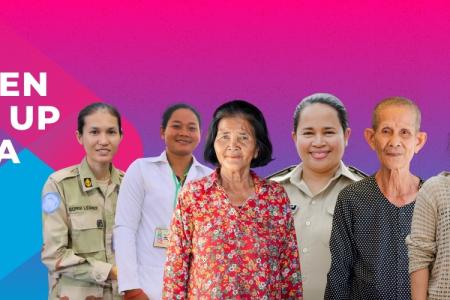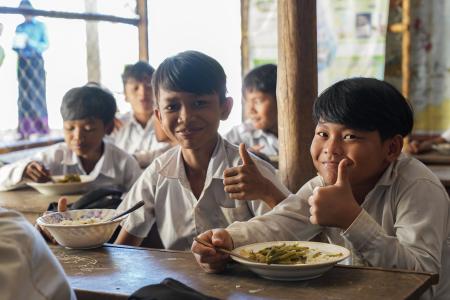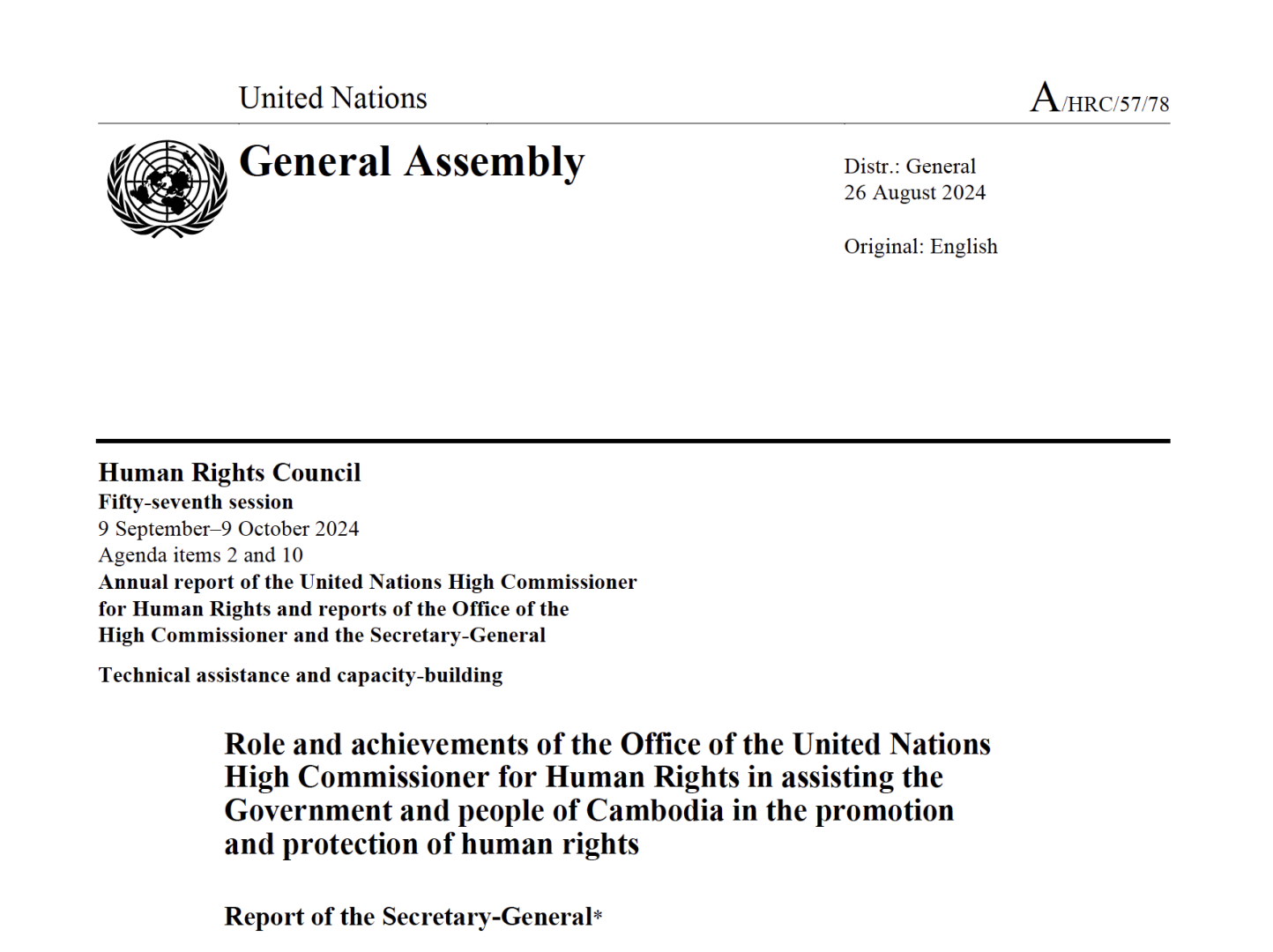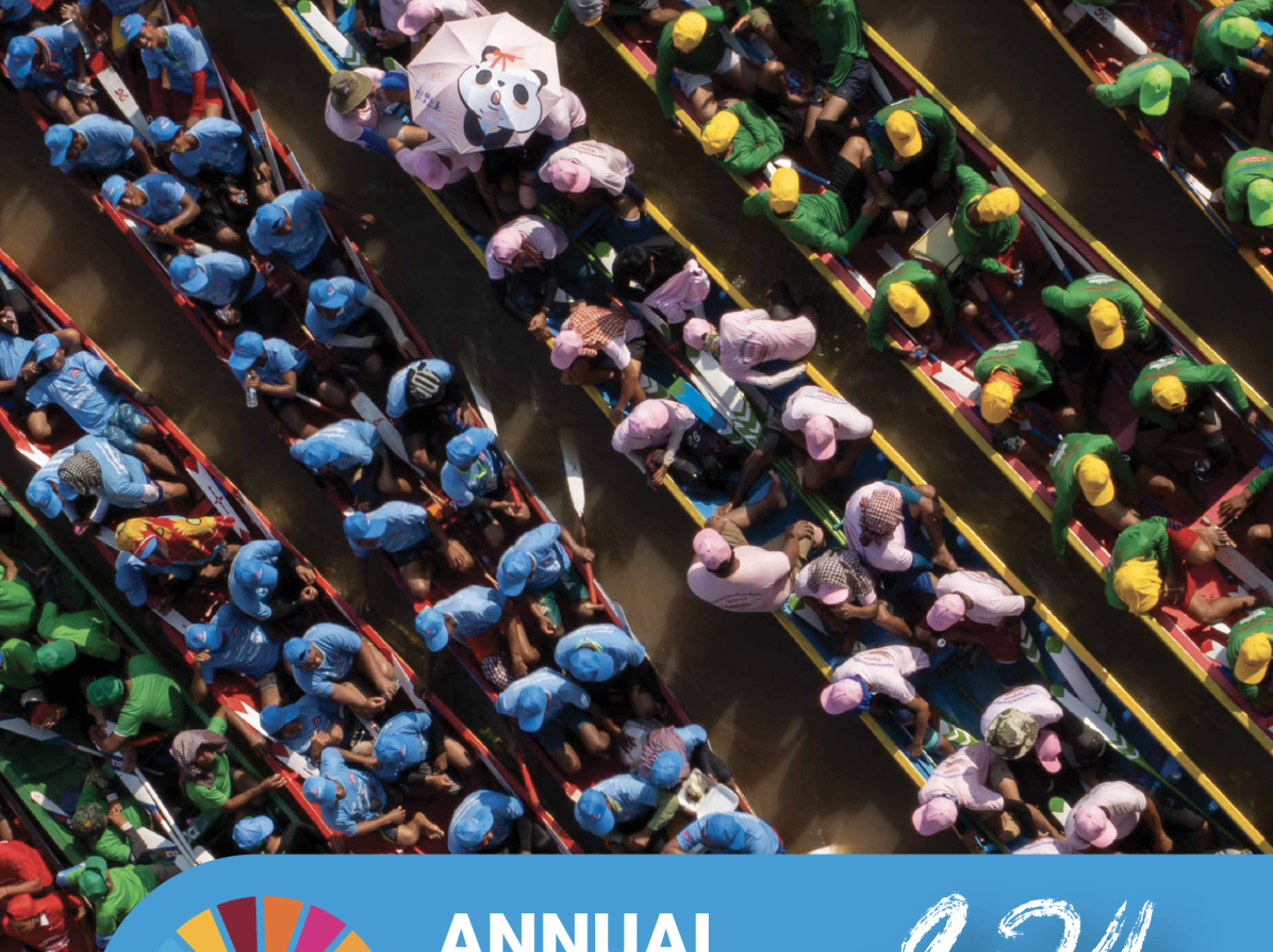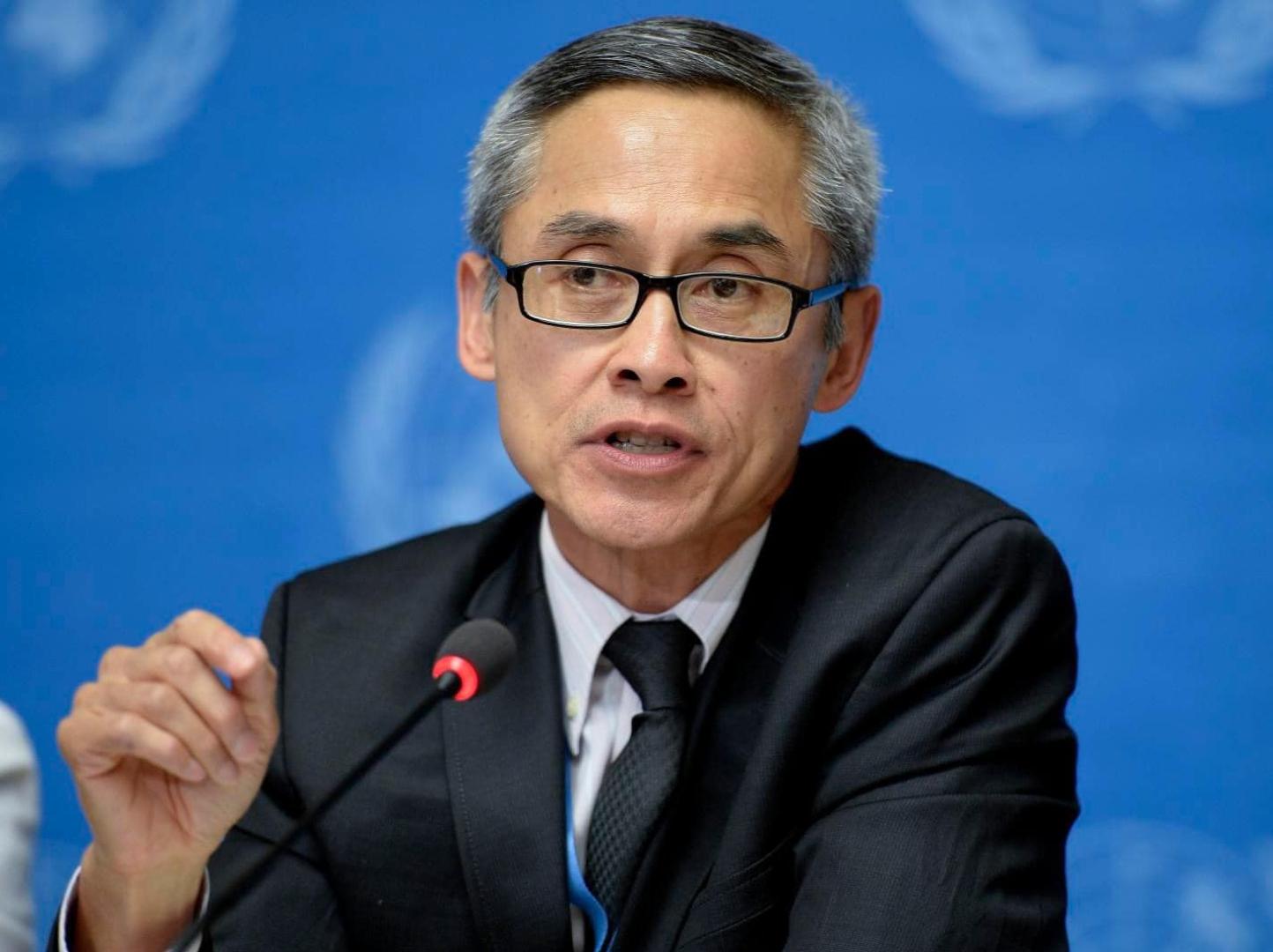Latest
Story
13 January 2026
Secretary-General Appoints Vladanka Andreeva of North Macedonia United Nations Resident Coordinator in Cambodia
Learn more
Press Release
24 December 2025
UN Supports Government in Joint Multi-Sector Rapid Needs Assessment
Learn more
Speech
10 December 2025
77th International Human Rights Day under the theme “Maintaining Peace and the Respect for Human Rights”
Learn more
Latest
The Sustainable Development Goals in Cambodia
The Sustainable Development Goals are a global call to action to end poverty, protect the earth’s environment and climate, and ensure that people everywhere can enjoy peace and prosperity. These are the goals the UN is working on in Cambodia. Cambodia has added an 18th goal to its localized version of the Sustainable Development Goals (SDGs)- "End the negative impact of mins/ERW and promote victim assistance".
Take Action
02 January 2026
ACT NOW campaign
ActNow is the United Nations campaign to inspire people to act for the Sustainable Development Goals.
1 of 5

Story
13 January 2026
Secretary-General Appoints Vladanka Andreeva of North Macedonia United Nations Resident Coordinator in Cambodia
United Nations Secretary-General António Guterres has appointed Vladanka Andreeva of North Macedonia as the United Nations Resident Coordinator in Cambodia, with the host Government’s approval. She took up her post on 10 January.
Ms. Andreeva brings over 25 years of experience in international development, humanitarian coordination, strategic advocacy and partnership building across diverse regions and contexts. She most recently served as the United Nations Resident Coordinator in Azerbaijan, where she led the United Nations country team in advancing national sustainable development priorities, including in a post-conflict recovery context. During her tenure in Azerbaijan, Ms. Andreeva provided strategic leadership to support system-wide United Nations engagement in preparations for the twenty-ninth Conference of the Parties [to the United Nations Framework Convention on Climate Change] (COP29), promoting an inclusive and development-centred climate agenda. She also advanced work on sustainable urbanisation, strengthening partnerships and supporting national dialogue in the lead-up to the thirteenth World Urban Forum.
Previously, Ms. Andreeva held several senior roles with the Joint United Nations Programme on HIV/AIDS (UNAIDS), including as Country Director in Cambodia, where she also provided leadership for the UN system’s COVID-19 response and coordination efforts, as well as serving as Strategic Intervention Adviser at the UNAIDS Regional Office for Asia and the Pacific, and Monitoring and Evaluation Team Lead for UNAIDS in Viet Nam. Ms. Andreeva also served with the United Nations Development Programme (UNDP) as a Policy Adviser for Europe and the Commonwealth of Independent States, following her role as Adviser to the United Nations Resident Coordinator in North Macedonia. Earlier, she supported humanitarian operations with the World Health Organization (WHO) and the Office for the Coordination of Humanitarian Affairs.
Prior to joining the United Nations, Ms. Andreeva worked with the non-profit organization Pharmaciens Sans Frontières, coordinating humanitarian relief for refugee communities.
Ms. Andreeva holds a bachelor’s degree in dental medicine and a master’s degree in public health.
1 of 5

Speech
06 November 2024
2024 National Nutrition Day and the Launching of the Joint Programme SDG Seed Fund 'Transforming Cambodia’s food systems to become more sustainable, healthy, inclusive and resilient'
Excellency Ouk Rabun, Senior Minister and Chairman of CARDExcellency Chea Samnang, Vice Chairman of CARDExcellencies, Vice chairmans of CARD (tbc)Excellency Sok Silo, Secretary General of CARDMr. Jost Kadel, Deputy Chief of Mission and Head of Cooperation of the Federal republic of Germany Embassy in CambodiaRepresentatives from line ministries, development partners, and civil societyLadies, gentlemen, and youth the future leaders On behalf of the UN Resident Coordinator, it is my honor to extend warm congratulations to the Council for Agricultural and Rural Development (CARD) and the people of Cambodia on the celebration of National Nutrition Day. This occasion highlights the significant strides made in improving nutrition, thanks to the dedicated efforts of CARD, the Royal Government of Cambodia, and many committed development partners.Good nutrition is essential for health, development, and overall well-being. It supports physical growth, cognitive function, and reduces the risk of chronic diseases, leading to healthier, longer lives. Adequate nutrition also enhances maternal health, boosts economic productivity, and reduces healthcare costs by preventing disease. By promoting equity and aligning with the UN’s Sustainable Development Goals, nutrition drives sustainable development, breaking cycles of poverty and improving the quality of life for all.Over the past decades, Cambodia has made remarkable progress in improving food and nutrition security. Cambodia has launched pivotal initiatives and national strategies, such as the National Strategy for Food Security and Nutrition, aimed at tackling malnutrition and promoting healthier diets, particularly among women and children. In collaboration with multiple UN agencies and partners, public awareness campaigns have been launched to emphasize the importance of balanced diets, maternal nutrition, and effective child-feeding practices. Initiatives like school feeding programs have further enhanced nutritional intake and improved health and educational outcomes for children, while the Food Fortification Initiative has addressed micronutrient deficiencies by enriching foods with essential vitamins and minerals. These collective efforts reflect Cambodia’s commitment to addressing nutritional challenges and fostering long-term public health improvements.Today’s celebration of National Nutrition Day not only recognizes these achievements but also serves as a fitting platform to discuss the way forward how we can work together to address the ongoing challenges Cambodia is facing, such as child wasting, prevalent micronutrient deficiencies, nutritional disparities among the population groups, and overweight and obesity. I am pleased to share that three UN agencies—FAO, WFP, and UNICEF—have recently secured approval for the SDG Seed Fund Joint Programme, a transformative initiative focused on building sustainable, inclusive, and resilient food systems in Cambodia. This joint effort, guided and chaired by CARD and co-chaired by UNRC, will update Cambodia’s National Food Systems Roadmap with a focus on nutrition, climate resilience, and gender equity. This roadmap will play a critical role in reinforcing the very objectives we celebrate today—ensuring that improved nutrition outcomes remain central to sustainable development in Cambodia.This afternoon’s consultative session, dedicated to the revision of the National Food Systems Roadmap, presents a valuable opportunity to identify priority areas for action, align strategies, and establish a comprehensive investment plan. I encourage everyone to actively participate, share insights, and contribute to shaping a future where sustainable food systems drive better nutrition outcomes for all Cambodians. Before concluding, I would like to share a few messages with our youth, particularly those present here today. As future leaders, practitioners, and changemakers, you hold a unique and powerful role in shaping the future of our food systems. Today is an opportunity to make your voices heard, to share your fresh perspectives and innovative ideas that will help us set pathways toward sustainable food systems in the face of climate change.Once again, congratulations on National Nutrition Day. I wish you all a productive and insightful workshop as we work together to ensure that nutrition remains at the heart of Cambodia’s development agenda.
1 of 5
Story
30 April 2025
Cultivating Growth: Thnal Kaeng Primary School's Path to Nutritional and Academic Advancement
In the heart of Chikraeng District, Siem Reap Province, Thnal Kaeng Primary School once grappled with adversity. Housing 180 students, half of whom were girls, the school struggled with poverty, hunger among its students, frequent absences, and a distressing dropout rate. Academic performance suffered, and absenteeism cast a shadow over the institution, prompting Mrs. Yon Hea, the school principal, to take action for the holistic well-being and future prospects of her students and the school community at large. Empowering Students Through NutritionBefore the introduction of a school feeding programme, students were often too hungry to concentrate due to empty stomachs, resulting in poor academic performance and high dropout rates. Hea observed that children could barely focus on their studies, often leaving class by 09:30 am in search of food, disrupting their learning and compromising their health. Cultivating Success Through Local InitiativesOver the last two years, the school underwent a transformation with the establishment of a homegrown school feeding programme. In collaboration with the United Nation World Food Programme (WFP), the school received training in nutrition, food safety, and hygiene, empowering to the principal, cooks, and storekeeper to ensure the daily provision of nutritious meals for the students. This success was not achieved in isolation. The synergy among parents, children, and school administrators played a critical role in the programme’s triumph. Parents volunteered their time and donated essential ingredients like spices, garlic, fish paste, sugar, salt, and firewood to the school kitchen. Simultaneously, the school feeding committee engaged in fundraising activities to sustain the programme and support various school activities. A Transformed Learning Environment The impact of the school feeding programme was profound and immediate. Enhanced nutrition led to a surge in attendance rates, a decline in absenteeism, and remarkable improvements in academic performance. Students exhibited heightened alertness and concentration during lessons, resulting in significant advancements in reading proficiency and overall educational outcomes.The school feeding programme emerged as a catalyst for change and achievement for this community, showcasing the power of community engagement and the critical role of nutrition in education. The well-being, opportunities, and academic achievements of the students were markedly elevated. By addressing food insecurity, promoting health, and fostering learning capacities, the programme not only enriched the lives of the students, but also contributed to the economic vitality of the local community and rural areas, serving as a safety net for vulnerable children and nurturing their holistic development. A Lasting ImpactHea's unwavering commitment, coupled with the strong support of the community, turned a once dire situation into an inspiring narrative of success. The school feeding programme has ensured that every child at Thnal Kaeng Primary School has the chance to excel academically and enjoy good health. Beyond alleviating food insecurity and fostering well-being, the initiative has sharpened students’ learning capabilities and contributed positively to the local economy. Thanks to this programme, the children of Thnal Kaeng Primary School are now set on a path to a brighter, more promising future.
1 of 5
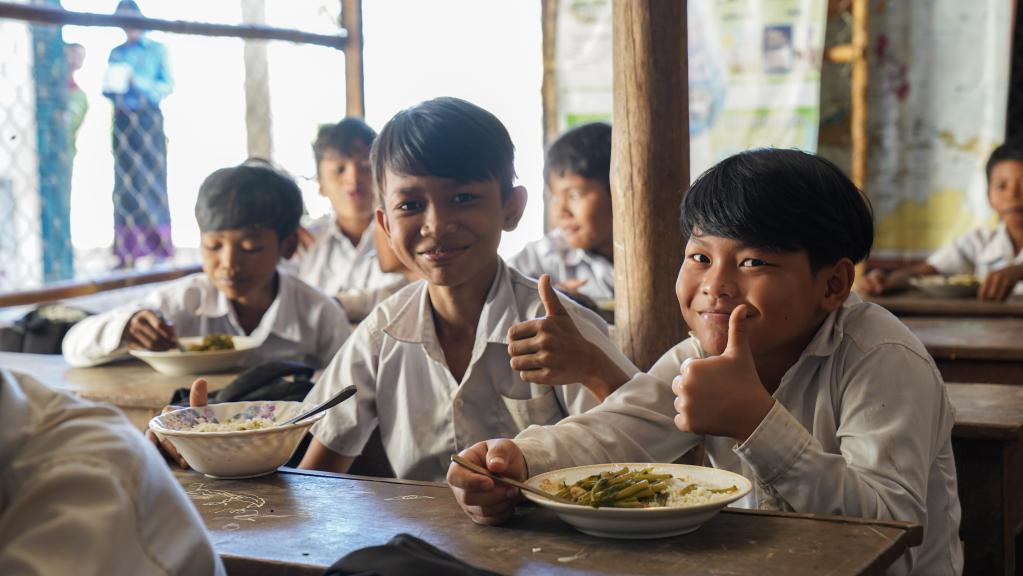
Speech
23 August 2024
National Youth Summit – Summit for the Future Cambodia
Check against delivery His Excellency. Serey Chhumneas, Secretary of State for the Ministry of Education, Youth and Sport and his teamHer Excellency. Sroy Socheat, Secretary General of the General Secretariat of the National Youth Development Council of Cambodia and Director-General of Youth, Ministry of Education Youth and Sport and her teamThe UN Resident Coordinator Mr. Jo ScheuerExcellencies and distinguished guests, development partners, UN sister agencies, civil society – and most importantly all of the young people here todayArun Suasodey Good morning! On behalf of the United Nations Country Team and as the Representative of UNFPA it is an honour and pleasure to be here today at the Summit for the Future Cambodia. We are honoured to have so many esteemed guests here today - however I am directing my remarks this morning at our youth leaders. Gathered here today are Cambodia’s leaders of both today and tomorrow - set to inherit the successes and challenges of your elders and carry them towards the future. It is an enormous privilege to meet with you and to ensure that your insights, experiences, your intellect and your passion contribute and guide the upcoming Summit of the Future scheduled to take place on September 22-23 in New York.Our Resident Coordinator and UN country team members were able to join some of you at the youth consultative workshop on the Declaration for Future Generation led by the UN Youth Advisory Panel with support from the UN Country Team in Cambodia. They were deeply inspired then, and I anticipate that we will be even more inspired today by the passion, creativity and energetic commitment to transformation and positive change by the over 250 young leaders gathered today in this hall.This national summit holds great potential, providing you a platform to address pressing issues in advance of the global Summit of the Future, and to produce an outcome statement that will effectively convey your voices and your aspirations to an international audience. As you deliberate on the critical issues facing Cambodia and the world - from climate change to social justice, from technological innovation to global governance - I urge you to dream big, to challenge the status quo, and to put forward bold, transformative solutions. Your voices, your ideas, and your actions have the power to catalyse real, lasting change.I would like to acknowledge and thank HE Dr. Hang Chuon Naron, the Deputy Prime Minister and the Minister of Education, Youth and Sports and his whole team for their leadership and the National Youth Development Council for their guidance and partnership. The commitment towards ensuring that Cambodian youth voices are heard at the global level is truly commendable. Furthermore, I would like to acknowledge the leadership and coordination of the United Nations Youth Advisory Panel Cambodia in organizing this momentous event. I also want to express appreciation to the UN Country Team, notably my own agency UNFPA and my team members who have dedicated much time, leadership and support in bringing this summit to fruition. What is really great about this event today is that it’s been truly youth led. Over the 6 past months, UNYAP alongside many youth networks have worked very hard - congratulations to UN YAP for your ability to bring together over 15 youth organisations and networks which are participating in this event today. The 12th of August marked International Youth Day and, though we may be a little late, I take this opportunity to extend my best wishes to all 250 of you in person. Happy 25th International Youth Day, everyone. There is no better way to celebrate than to be heard, and this Summit is built for exactly that purpose. Be thoughtful, be loud and be bold and brave!On behalf of the UN Country team in Cambodia, please be assured that we are resolutely committed to amplifying your calls for transformation, translating your visions and voices into tangible policies and programs, and advocating for greater youth representation in decision-making processes. We recognize that the future belongs to all of you. I eagerly anticipate the insightful discussions that lie ahead today. Thank you!
1 of 5
Story
07 November 2025
Breaking barriers for peace: Cambodian Officer Nget Chansomphos leads the way in demining and peacekeeping
Today, she is not just an expert in one of the world’s most dangerous professions, but a two-time UN peacekeeping veteran, having served with distinction in the Central African Republic (CAR). Her journey from the mine-scarred landscapes of Cambodia to becoming a senior technical authority on the global stage is a testament to the mastery, courage and determination women bring to peace and security.“The reason I chose the mine-clearance field is because my mother told me that Cambodia was once in the grip of war,” she explains. The shadow of the brutal Khmer Rouge regime and the subsequent civil conflict left Cambodia saturated with landmines and unexploded ordnance – a constant, deadly threat to peace even decades later.“When my daughter wanted to work in demining, as a mother, at first I was afraid,” her mother recalls. “I thought of how landmines are not normal things because I lived through the Pol Pot era, with mines exploding.” Despite those fears, she chose to respect and actively guide her daughter, encouraging her to learn about the country’s needs and to pursue formal training. Chansomphos says that support gave her the strength to persevere. After completing her basic military courses, Chansomphos entered specialized mine-clearance training. “When I started, I did not know much about ordnance or terminology,” she admits. “It was difficult at first, but through training and experience I learned to recognize and safely destroy them.” But her persistence turned uncertainty into confidence. “The biggest pride I have is that I can detonate ordnance with my own hands.” After gaining proficiency in explosive disposal, Chansomphos expanded her skills by learning to operate a disruption machine, a remotely operated robot used to destroy ordnance without risking human lives. “When I was deployed and saw it in action, I asked my commander if I could learn. I was determined to master it.” She soon became one of her team’s key remotely operated vehicle specialists, using the machine to enter dangerous areas, assess terrain and clear safe paths for others.Between 2022 and 2025, Chansomphos served on two mine-clearance missions in the Central African Republic, where her technical skills and leadership proved invaluable. "Our activities included clearing mines in communities and in areas where ordnance was found," she explains. "Because some locations are very high risk, I am often on standby to operate the robot and survey the path so the demolition team can enter safely."Initially, she worried about being treated differently as the only woman on her team. “I thought they might discriminate, but they supported me and praised me for being brave. We do not distinguish between men’s work and women’s work. We work together to get the job done.” Despite progress, women like Chansomphos remain rare in the sector. As Kosal Malinda, Deputy Director General of the National Centre for Peacekeeping Force, Mine and ERW Clearance (NPMEC), explains: “Women still face barriers to leadership in peacekeeping, and many leave missions due to family responsibilities. We are working on a strategy to better support and retain them, recognising their vital role at home and abroad.”Between 2022 and 2024, the Royal Cambodian Armed Forces (RCAF) conducted a barriers assessment— in cooperation with CPCS, UN Women and supported by the Elsie Initiative Fund—to expand the deployment of uniformed women to UN peace operations. The findings are now guiding gender-responsive recruitment, planning, training and deployment.And there has already been an uptick in uniformed women in RCAF UN deployments, rising from 16.5 per cent in 2022 to 20 per cent in 2024. “Chansomphos’ story shows how targeted support and policy change can remove barriers and create real opportunities for women to serve and lead in peacekeeping,” says Sophea Khun, UN Women Cambodia Country Programme Coordinator.Now a Mine Detection Dog handler, Chansomphos supports the search and detection phase of demining operations. She reflects on her journey with quiet pride, echoed by her mother: “We gained honour, my child gained honour, and the nation also gained honour.”Her goals are clear, a world without explosives and a security sector where gender is not a barrier to leadership. “I appeal to all leaders to empower women and avoid the discrimination that suggests women cannot do this work,” she says. “The truth is that women absolutely can.”
1 of 5
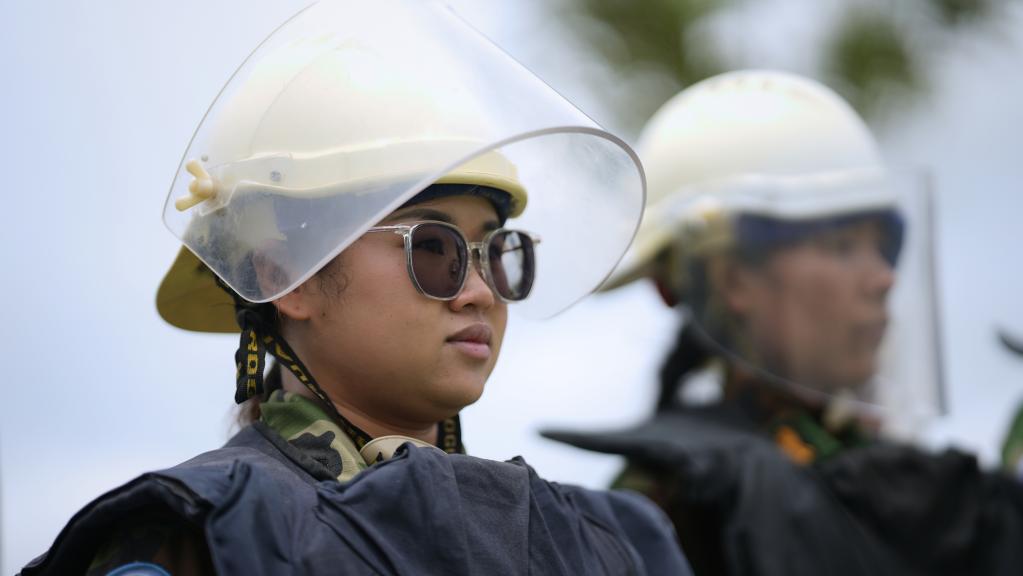
Story
18 September 2025
A New Life in the Midst of Unrest: Seyha’s First Days in Banteay Ampil Camp
Banteay Ampil Camp, Oddar Meanchey Province—Just two days old, baby Seyha rests nestled between his mother and grandmother. His tiny form is both fragile and glowing with life, against the backdrops of displacement and uncertainty. His mother, 20-year-old Khun Khal, cradles him gently inside a makeshift shelter stitched together with a thin tarp. The memory of gunfire on the night of 24 July still echoes in her mind. Alongside her husband, 20-year-old Pek Chhin, and her mother, 42-year-old Ken Leav, she fled their home after the abrupt clash of artillery fire shattered the quiet of their village. The journey was chaotic: rain mingled with smoke; thunder mimicked gunfire; and fears clung to every step. Families fled with only what they could carry in their arms. “It felt like ages. We left in the morning and arrived at the camp at night. I was terrified – my daughter was due to give birth any day,” says Leav. A week later, Seyha was born when they were in the camp. Life here is harsh. Monsoon rains soak shelter at night, turning the floor wet and muddy and the air chilling. Nights are long and sleepless. Bathing is a daily challenge. Chhin navigates slippery trails to fetch water from communal water points, balancing what he could carry with anxious care. In the dim shelter, under Leav’s watchful gaze, Khal washes Seyha with just a few sips. Chhin’s voice cracks as whispers, “I’m scared my wife and baby will fall ill without enough clean water.” Food is basic and monotonous—rice, oil, noodles, dried fish. Fresh vegetables, fruits, or milk rarely make their way into the camp. Khal worries if her own limited nutrition is enough to nourish Seyha through breastfeeding.Health risks loom large: diarrhea, fever, cough sweep through the crowded, damp camps. No malnutrition screening is in place, even as Cambodia’s wasting rate hovers near 10 percent—a silent threat to newborns like Seyha. Yet, in the quiet rhythm of Seyha’s breath, Khal looks softly at the baby and murmurs: “I only want him to feel love, not fear.” Her gaze shifts to Leav, sitting silently nearby, offering strength in absence of infrastructure, and Chhin, whose every careful move spells love in action, not words. In that whispered phrase lies something profound: a newborn’s soft breath could outlive conflict—if we help make sure of it. Read WFP Cambodia Country Brief June-August 2025
1 of 5

Story
28 April 2025
From Awareness to Action: Cambodia's Fight Against Tuberculosis
In the village of O’Krasa, Kep Province, Dr Hun Sokkea, the Director of the O’Krasa Health Center is leading the fight against tuberculosis (TB). At just 35, she has dedicated over a decade to keeping her community healthy and informed.Despite being preventable and curable, TB remains the world’s deadliest infectious disease, claiming 1.5 million lives annually. Cambodia has made remarkable progress in combating TB, as reflected in two surveys conducted in 2002 and 2011. Over that period, Cambodia achieved a 45% reduction in the prevalence of bacteriologically confirmed TB.However, challenges persist. According to Dr Sokkea, many residents lack awareness about TB, underestimating its risks and believing it only affects those with a family history. This misconception hinders early detection and treatment, further fueling transmission.Health workers at the O’Krasa Health Center play a critical role in combating these challenges. They provide free treatment, educate patients, and raise awareness about prevention. Community outreach efforts aim to identify at-risk individuals, helping curb TB transmission and reduce its impact on livelihoods.A significant milestone for the community came with the third TB Prevalence Survey, launched in 2023 with field operations completed in May 2024. Conducted across 84 sites, the survey confirmed a continued decline in TB prevalence. “We are proud that Cambodians are contributing to understanding TB’s burden and seeking timely treatment,” said Dr Huot Chan Yuda, Director of the National Centre for Tuberculosis and Leprosy Control.While the official launch of the results and report is planned for March 2025, the preliminary survey results are already shaping Cambodia’s TB strategic interventions for 2025–2027. One key finding revealed that 33,3% of TB cases in 2023 were asymptomatic, compared to 10% in 2011. In response, the program has started introducing AI-assisted chest X-ray technology to improve community screening.Dr Sokkea hopes to inspire more residents to seek regular health screenings, emphasizing the importance of early intervention. As she reflects, “Health is the most important thing. If we have good health, wealth will follow.” Cambodia’s progress against TB underscores the power of knowledge, collaboration, and care, proving no one must fight TB alone.
1 of 5
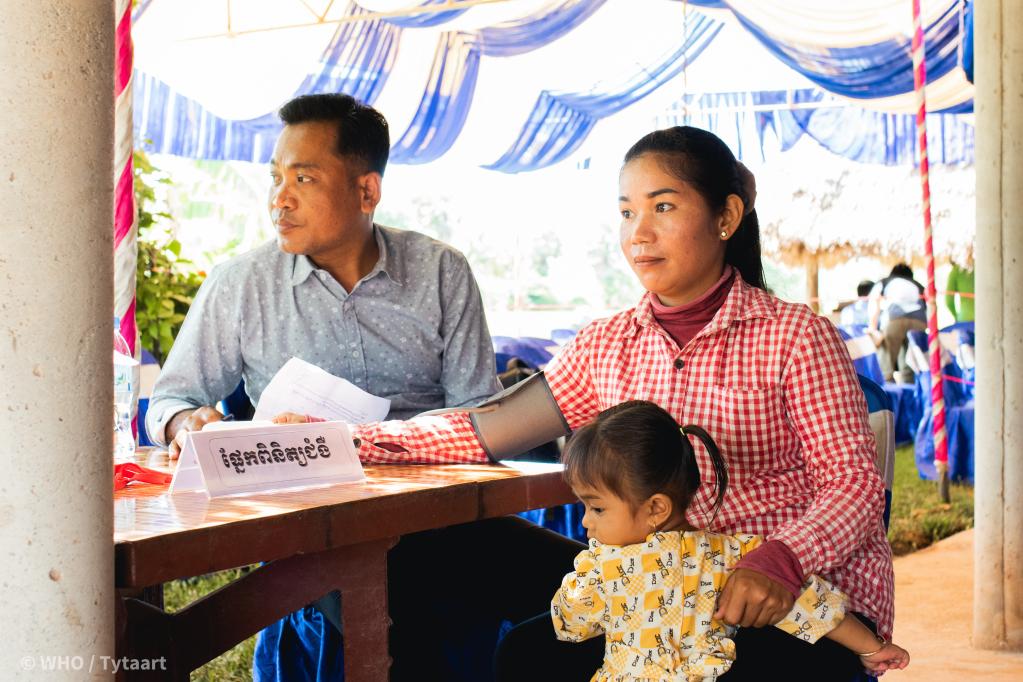
Story
26 March 2025
FINANCIAL INCLUSION, NOT EXPLOITATION: THE UN'S PUSH FOR ETHICAL MICROFINANCE
Recognizing the urgent need for reform, the UN Resident Coordinator, in collaboration with the National Bank of Cambodia (NBC), has convened a structured dialogue bringing together government agencies, financial institutions, investors, civil society organizations, and development partners. In November 2023, the NBC-UN Convening Multi-Stakeholder Consultation Process on Microfinance in Cambodia was launched—the first initiative of its kind. This neutral platform has engaged over 100 institutions in technical discussions, stakeholder dialogues, and high-level consultations to address the risks of unsustainable lending. The process has led to the adoption of 22 priority actions aimed at strengthening consumer protection, responsible lending, legal safeguards, and financial safety nets for rural borrowers. The UN's role in convening diverse actors has been instrumental in fostering transparency, accountability, and collaboration. UN Resident Coordinator Jo Scheuer emphasized: "The UN facilitates discussions, ensuring inclusive dialogue among stakeholders, but the progress of this initiative ultimately depends on the active participation and commitment of all involved."While encouraging steps have been taken, the path ahead remains complex. Within six months, four priority actions have been fully implemented, 15 are progressing, and three are in the early stages. Sustained coordination, follow-up, and high-quality technical advisory support will be essential to ensure that reforms lead to lasting impact. The initiative has the potential to mitigate risks of over-indebtedness and to position Cambodia's financial sector as a model for responsible microfinance governance in the region. By fostering inclusivity and collective action, the UN in Cambodia is supporting systemic change and financial services that empower individuals while safeguarding economic stability. This initiative sets a precedent for sustainable microfinance and reinforces the UN's commitment to equitable development and responsible financial inclusion.THE UN IN CAMBODIA IS DRIVING RESPONSIBLE MICROFINANCE REFORM THROUGH MULTI-STAKEHOLDER DIALOGUE, ENSURING CONSUMER PROTECTION, FINANCIAL STABILITY, AND SUSTAINABLE ECONOMIC GROWTH.
1 of 5
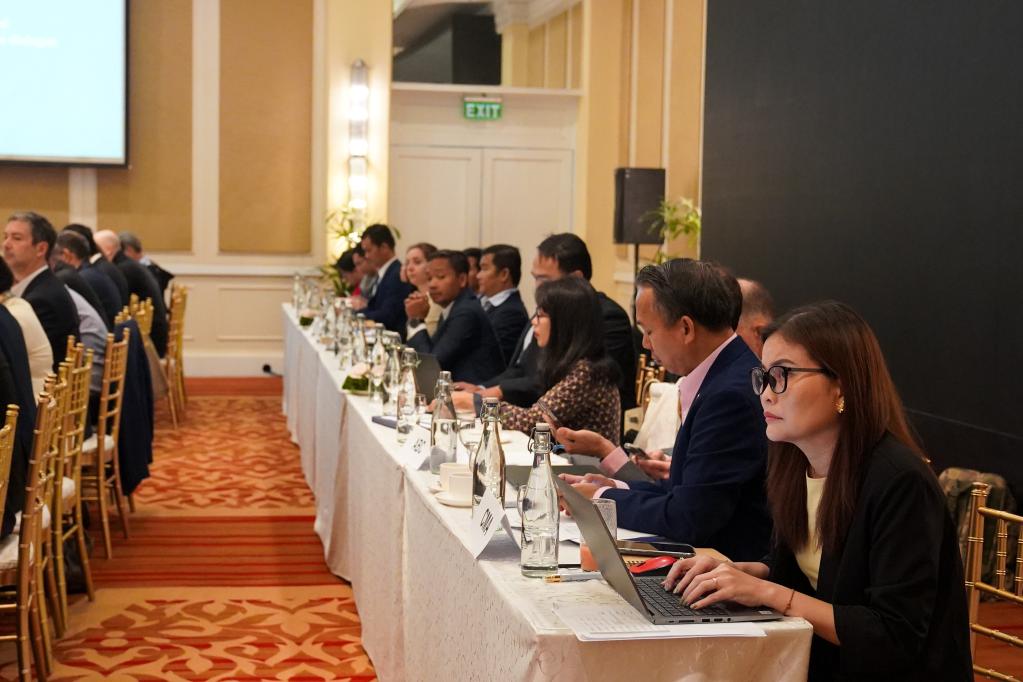
Story
20 March 2025
Sreymom: A Champion for Safe Migration and Education in Cambodia
Soun Sreymom, a former Cambodian migrant worker, now uses her experience to advocate for safe migration and workers' rights. As a leading voice in the EU-funded PROTECT project in Cambodia, she facilitates community dialogues on gender, labour rights, and violence against women, and uses her powerful photographs to spark conversation and raise awareness about safe migration.Approximately 1.3 million Cambodians work abroad, contributing significantly to Southeast Asia's economy. Women constitute nearly half of the region's 10 million migrants, forming a vital economic force through remittances that support families and communities. However, the lack of essential information and support often undermines the potential benefits of migration.Now living in a rural community in Kampong Speu Province, Sreymom’s experience highlights the issues faced by many. "I faced challenges when switching from one job to another," she reflects. "First, I believed that changing jobs would lead to safer and less demanding work environments. However, the reality was the opposite, and the difficulties got worse with each job change. We had no choice but to accept these difficult and unsafe jobs."Sreymom spent 12 years travelling between Cambodia and Thailand for work, where she encountered the stark contrast between promised opportunities and harsh realities. "When I first migrated, I didn’t know the language," she recalls. "I worked as a rubber tapper. We didn’t know when we would get paid or anything. We didn’t dare to ask because we didn’t know the language. So, for the first five months, we didn’t get any pay from the boss." Without legal documentation and facing language barriers, she endured months of unpaid labour.Khun Sophea, Country Programme Coordinator at UN Women Cambodia, highlights the isolation many women migrant workers experience: "There's a strong sense of isolation as many don't speak the language of the destination country and lack a deep understanding of its culture. Additionally, they struggle with a lack of information about essential services and don’t have any support networks, making it difficult to find help if they face abuse or discrimination.”A VOICE FOR SAFE MIGRATION After returning to Cambodia in 2018, Sreymom joined a Peer Network. Initially part of the Safe and Fair Programme, this network transitioned to the PROTECT project, a partnership between the ILO, UN Women, UNODC, and UNICEF, funded by the European Union, focused on protecting the rights of women and children migrant workers in Cambodia, Indonesia, Malaysia, and Thailand. The PROTECT project’s peer networks are vital support systems for women migrant workers across Southeast Asia, providing both online and in-person spaces in countries like Cambodia, Indonesia, Malaysia, and Thailand. These networks, operating both online and in-person in countries including Cambodia, Indonesia, Malaysia, and Thailand, provide safe spaces for women to connect, share information, share experiences, learn about risks, and access essential support services. "Mostly, as women working in other countries, we need support to talk to our families, share our problems, or find help to leave a difficult situation," Sreymom reflects. Through these networks, women gain leadership skills, better understand their rights, and reduce feelings of isolation.Through this network, Sreymom discovered the My Journey mobile app, a vital resource offering information and emergency support. "At first, as a migrant, I didn't know much. I just went. But this app guides us, no matter where we are, and provides contact numbers we can use if we are in trouble." Sreymom actively shares the app with her community, offering a lifeline of support to friends and relatives working abroad. "I share it with my relatives who are already in Thailand and lack support and information. They love the app because now they have something to rely on." As part of the same programme, Sreymom was one of 28 women selected to participate in a participatory photography project. Using mobile phones, she documented and reflected on her migration journey, capturing both the struggles and hopes within her community. The project aimed not only to gather valuable information but also to equip participants with skills in self-expression, reflection, and critical thinking. “I gained knowledge about photography and learned how to use photographs to tell stories,” says Sreymom.Currently, Sreymom is preparing to lead community dialogues on gender, migration, and violence against women. She has co-designed “Photo-language” cards to facilitate these dialogues, using the very photos taken by herself and other migrant women to share experiences and raise awareness. "I am excited to continue contributing to community dialogues, sharing my migration experience, and leading discussions using the photo-language cards," she shares. NEW ROLE IN EDUCATIONSreymom understands that education is more than just learning—it’s a lifeline. Motivated by her belief that education can prevent unsafe migration, she began teaching kindergarten in her community. "People in my village are mostly poor, and children have difficulty continuing their studies due to family conditions. Some children migrate with their parents. Without education, they will end up working in low-paid jobs or migrating without proper documentation," Sreymom explains.Her commitment has been recognised. Local authorities have informed her that she will be promoted to a formal kindergarten teacher under the Ministry of Education, Youth, and Sports. Today, Sreymom is a trusted and respected member of her community. "Some people in my village ask me if they should migrate to Thailand for work," she says. "I tell them that migration is their choice. But if they really need to go, they should go through a regular channel, with all the required documents, to be safe and avoid the hardships I faced."Her strength and community contributions exemplify what the PROTECT project aims to foster among migrant women – recognising their innate strength and capacity to transform their communities. Sophea Khun reflects, "From my experience working with women migrant workers, I find them truly amazing. They exhibit strength and courage while navigating their lives. We need to continue to find ways to raise their voices, share their experiences, and showcase their strengths."Looking back on her transformation, Sreymom says, "I've had the opportunity to become more confident and gain a clearer understanding of myself. I feel like I have been given a voice." Through her tireless work, Sreymom empowers others, ensuring that future generations of migrants are better informed, protected, and supported. -----The project "Ensuring Decent Work and Reducing Vulnerabilities for Women and Children in the Context of Labour Migration in Southeast Asia (PROTECT)", running from 2024 to 2026, is funded by the European Union and jointly implemented by the ILO, UN Women, UNICEF, and UNODC to safeguard the rights of women and children in labor migration.
1 of 5
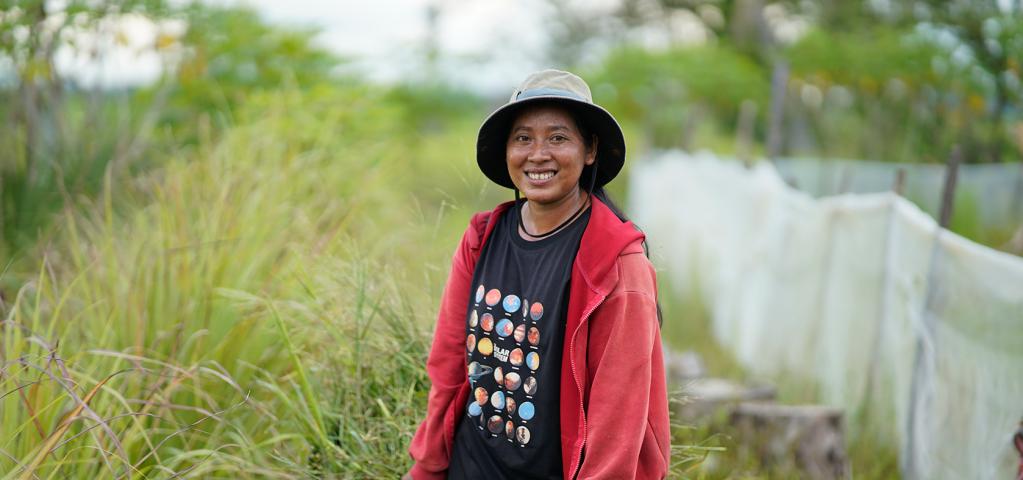
Press Release
24 December 2025
UN Supports Government in Joint Multi-Sector Rapid Needs Assessment
Bringing together UN agencies and humanitarian partners, the assessment teams will work directly with internally displaced people (IDPs) and local authorities to identify urgent needs across shelter, water and sanitation, health, food security and nutrition, education, livelihoods, and protection. The findings will support the Royal Government of Cambodia and partners in prioritizing assistance, strengthening coordination, and ensuring timely, standards-based humanitarian support.This assessment is part of the broader UN response to assist people in Cambodia affected by the conflict. Since July to date, more than 100,000 people across seven provinces have received support from HRF Partners, including the UN, covering areas such as water and sanitation, health, education, food, and shelter.Furthermore, the UN has been working closely with the Government to support migrants returning from Thailand by improving employability and providing social services such as social protection. The UN is also analyzing the socio-economic impacts on IDPs and migrant returnees to develop a recovery plan addressing immediate and medium-term needs.
1 of 5
Press Release
20 November 2025
CAMBODIA LAUNCHES NATIONAL ROADMAP TO SAVE LIVES WITH PEOPLE-CENTRED EARLY WARNING SYSTEMS
The roadmap, developed through collaboration among government ministries, UN agencies, and civil society, aligns with global Early Warnings for All (EW4ALL) standards and Cambodia’s Disaster Management Law. It is built on four key pillars: risk knowledge, observation & forecasting, warning dissemination & communication, and preparedness and response. “This national roadmap gives Cambodia a clear pathway to strengthening coordination,” said H.E. Kitte Sangahakbandith Kun Kim, Senior Minister and First Vice President of the National Committee for Disaster Management. “With leadership, partnership and sustained resources, we can ensure warnings become action and vulnerabilities become resilience.” Endorsed by the Prime Minister in August, the roadmap sets a clear path to strengthen resilience against climate and disaster risks. It calls for better coordination, investment in early warning systems, and a people-first approach to preparedness.“The successful implementation of the Early Warning for All roadmap, will depend on a strong, government led institutional mechanism that effectively mobilizes all relevant ministries and partners in the delivery of timely, reliable alerts to save lives and livelihoods,” said Jo Scheuer, United Nations Resident Coordinator in Cambodia.With nearly 80 percent of Cambodians living in rural, climate-sensitive locations and about 65 percent relying on agriculture, timely warnings for floods, droughts and storms are critical for food security. WFP will work with the National Committee for Disaster Management to set up a multi-stakeholder coordination platform, bringing together government ministries and partners such as UNDP, FAO, IFAD, and the World Bank.Financing the RoadmapDespite a recent Green Climate Fund allocation of US $103.2 million for regional early warning system, Cambodia still faces a shortfall of US$22.7 million, approximately 41 percent of the roadmap’s estimated cost. “The real work begins now,” said Kyungnan Park, WFP Representative in Cambodia. “We need to move swiftly from roadmap to action, mobilising resources, linking early warnings to local response, and ensuring that every community is ready to act when it matters most.”Immediate priorities include finalizing operational protocols, activating coordination platforms, establishing resources allocation plans, and stepping up last‑mile communications to reach women, indigenous peoples and persons with disabilities. # # #The United Nations World Food Programme is the world’s largest humanitarian organization saving lives in emergencies and using food assistance to build a pathway to peace, stability and prosperity for people recovering from conflict, disasters, and the impact of climate change.Follow us on X, formerly Twitter, via @wfp_media and Facebook via WFPinCambodia.
1 of 5
Press Release
13 October 2025
EU CAPFISH-Capture: Post-harvest Fisheries Development Wraps up with Lasting Impact on Cambodia’s Fisheries Sector
Since its launch, the project has boosted local fishery production driven by enhanced safety, quality, and innovation, and has expanded market access. As of today, 22 enterprises are certified with the Cambodia Quality Seal (CQS), and 4 hold Hazard Analysis and Critical Control Points (HACCP) certification. These gains mean quality assured, more nutritious products for consumers—and better jobs, higher incomes, and stronger competitiveness for Cambodian businesses and communities.The project has also significantly improved employment opportunities—especially for women—in the post-harvest fisheries sector. Small-scale fish processors and rural fish enterprises have gained access to better technologies, training, R&D, and market opportunities—allowing them to upscale sustainably and contribute meaningfully to the local and national economy.“The EU CAPFISH-Capture: Post-harvest Fisheries Development project has generated tangible socio-economic impact by improving food safety, expanding market access, enhancing livelihoods, and creating jobs within a more inclusive and sustainable fisheries sector. This is a showcase of UNIDO’s mandate of inclusive and sustainable industrial development,” said Mr. Dejene TEZERA, Director, Division of Agribusiness and Infrastructure Development, Directorate of SDG Innovation and Economic Transformation, UNIDO.Sustainability and inclusion have been at the central of the project’s mission. The project promoted environmentally responsible practices—such as solar drying—and encouraged fish processors to comply with safeguards. Of the 64 fish processing enterprises supported, 46 are led by women and 3 by persons with disabilities, reflecting a strong commitment to inclusive entrepreneurship and ethical labour standards across the sector.By strengthening domestic production and promoting local consumption, the project has reduced Cambodia’s reliance on imported fishery products and enhanced its competitiveness in both local and global markets. These efforts directly support national food safety and contribute to broader food security across the region.“Beyond the project metrics and milestones, most importantly, EU CAPFISH-Capture has built trust. It has fostered dialogue, cooperation, and partnership among institutions, civil society, and private sector actors. It has demonstrated that donor-funded projects can and must have local ownership and entrepreneurship to be impactful. I am convinced that the strides made will continue at the same pace during the years to come,” said H.E. Igor DRIESMANS, EU Ambassador to Cambodia.The CAPFISH-Capture: Post-harvest Fisheries Development project stands as a powerful example of what can be achieved through strategic collaboration, innovation, and a deep commitment to inclusive and sustainable development. As it concludes, its legacy will continue to shape the future of Cambodia’s fisheries sector—and inspire similar progress across other industries.“The success of the EU CAPFISH-Capture project reflects how Cambodia’s fisheries sector is evolving—anchored in quality, sustainability, and inclusion. What we achieved together with our partners is not just improved products, but improved lives. As we move forward, MAFF remains committed to scaling these results nationwide, ensuring that our fishers, processors, and entrepreneurs continue to benefit from a sector that is modern, competitive, and environmentally responsible,” said H.E. DITH Tina, Minister of Agriculture, Forestry and Fisheries. EndFor more information, please contact:Dr. Chhoun Chamnan, Director of the Department of Fisheries Post-harvest Technologies and Quality Control (DFPTQ) of the Fisheries Administration (FiA): chhounchamnan@gmail.comMr. Samruol IM, National Communication and Visibility Expert for the CAPFISH-Capture project: S.IM@unido.org Ms. Phalkun Chan, Press and Information Officer for EU Delegation to Cambodia: phalkun.chan@eeas.europa.eu More information about the project: https://open.unido.org/projects/KH/projects/180039Project Newsletters: http://newslettercapfish-postharvest.org/achieve
1 of 5
Press Release
03 October 2025
ADVANCED CAMBODIAN NATIONAL MODEL OF UNIVERSITY IP POLICY TO SUPPORT R&D AND INNOVATION ECOSYSTEM
Co-funded by the European Union (EU) through the CAPFISH-Capture: Post-harvest Fisheries Development project, the IP policy model was developed by UNIDO’s international IP experts and refined through training sessions with the Food Technology, Research, and Innovation Platform (FTRIP), a multi-stakeholder platform for academia, government, and industry. “This model reflects our shared commitment to unlocking Cambodia’s innovation potential. It provides a clear framework for protecting university-generated IP and lays the groundwork for future prosperity driven by local talent,” said H.E. Dr. Hul Seingheng, Under Secretary of State, MISTI. At a national consultation workshop today, stakeholders reviewed the draft policy, identified implementation challenges, and aligned it with Cambodia’s broader IP governance and innovation strategies. The policy is expected to enhance commercialization of academic research and foster stronger collaboration between universities, industry, and government.“A robust IP framework empowers universities to become stronger partners in national R&D, ensuring public investments in research yield real socio-economic benefits through technology transfer and closer academia–industry–government collaboration,” noted Mr. Sok Narin, UNIDO Country Representative. H.E. Ouk Prachea, Secretary of State, MoC, added, “A well-defined university IP policy is essential for valuing and protecting our scientific and creative outputs, and for cultivating a vibrant culture of innovation.”The policy’s finalization marks a pivotal moment in Cambodia’s journey toward a more dynamic and sustainable R&D landscape.Ends – For more information about the project: http://newslettercapfish-postharvest.org/achieve
1 of 5
Press Release
24 September 2025
Joint Statement: The Third NBC-UN High-Level Multi-Stakeholder Convening on Microfinance in Cambodia
Progress to dateThe third High-Level Discussion reviewed and evaluated the progress made in implementing the 22 priority actions endorsed at the inaugural convening in July 2024 and the second convening in January 2025. To date, 10 priority actions have been completed, while 12 remain in progress across five key areas:Regulation and Supervision – The Code of Conduct with Responsible Pricing principles will be finalized in late 2025. A Sectoral Fund Pool has been initiated by associations to finance consumer financial literacy, debt counseling, and awareness-raising activities. Work continues on incentive framework for responsible lending and compliance monitoring.Borrower Protection – A Financial Consumer Center has been established to manage complaints, complemented by other mechanisms. Consumer protection laws are being strengthened, and nationwide financial literacy campaigns are scaling up.Data – Stakeholders are converging on a hybrid data-sharing model across regulators, banks, MFIs and non-bank institutions to strengthen responsible lending. Standard definitions of microloans are being finalized.Informal Lending and Local Authorities A Joint Statement has been issued to advance financial consumer protection, targeting illegal lending practices, including the use of ID cards, family books, and equity cards as collateral.Online land title system is being expanded to cover all registrations, improving transparency and industry access. Outdated land certification requirements have been removed to reduce fraud. Further law enforcement oversight is needed to curb predatory practices.Stakeholders also recommended piloting community-based lending models—where groups act as collective collateral—and promoting realistic lending conditions from formal financial institutions to reduce reliance on informal moneylending.Insurance and Alternative Financing – Efforts are underway to expand access to credit and risk protection for smallholder farmers through modern agricultural cooperatives and inclusive insurance products. Cost-sharing models are currently under discussion to improve affordability and reach among farmers. Way ForwardStakeholders reaffirmed that tackling over-indebtedness, ensuring responsible lending, and cracking down on illegal practices remain urgent priorities. Collaboration, transparency and community-level engagement will be key to safeguarding vulnerable households and advancing inclusive and sustainable development.The next convening will take place in December 2025. Stakeholders reiterated their shared commitment to building a fair, inclusive and resilient financial ecosystem for all Cambodians.More photos from the eventFor more information, please contact: National Bank of CambodiaTel: +855 23 990 196Email: nbccommunication@nbc.gov.kh United Nation in Cambodia, Ms. Keo SreysrosTel: +855 11 885 766Email: sreysros.keo@un.org
1 of 5
Latest Resources
1 / 11
Resources
12 June 2024
Resources
09 January 2024
1 / 11


